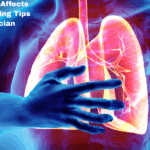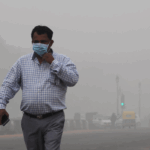
Sleep is not just a time for rest—it’s when your body resets, heals, and prepares for a new day. But for millions of Indians, sleep isn’t restful at all. A growing number of people are silently suffering from sleep apnea, a condition that causes repeated interruptions in breathing during sleep.
Despite its seriousness, sleep apnea often goes undiagnosed in India. Many people mistake it for simple snoring or tiredness, but left untreated, it can lead to high blood pressure, heart disease, diabetes, and even stroke. Let’s explore why sleep apnea is underdiagnosed and what you can do about it.
What is Sleep Apnea?
Sleep apnea is a disorder where your breathing repeatedly stops and starts while you’re asleep. The most common type is Obstructive Sleep Apnea (OSA), caused by the relaxation of throat muscles that block the airway.
When this happens:
- You briefly wake up to restart breathing (often without realizing).
- Oxygen levels drop.
- Deep sleep is interrupted multiple times a night.
Common Symptoms of Sleep Apnea
Many people live with sleep apnea for years without knowing. Here are some signs to look out for:
- Loud, chronic snoring
- Gasping or choking during sleep
- Feeling tired even after 7–8 hours of sleep
- Morning headaches
- Difficulty concentrating during the day
- Mood swings or irritability
- Dry mouth or sore throat in the morning
If you or your partner notice these symptoms, it’s time to seek medical advice.
Why is Sleep Apnea Often Undiagnosed in India?
Despite being a common condition, sleep apnea is still largely underdiagnosed in India due to several factors:
1. Lack of Awareness
Many people associate sleep problems only with stress or poor sleep habits. Snoring is often taken as a joke or ignored completely. Few realize it could indicate a serious medical issue.
2. Limited Access to Sleep Studies
Diagnosing sleep apnea typically involves an overnight polysomnography (sleep study), which is still not available in many smaller cities and towns.
3. Busy Lifestyles and Ignorance
Most working professionals and homemakers don’t take daytime fatigue seriously. They assume it’s due to overwork and ignore it, failing to connect it to poor sleep quality.
4. Cultural Stigma
In many Indian households, discussing sleep or snoring is taboo. Many patients avoid bringing it up, especially if it involves overnight testing or wearing a CPAP machine.
Why Early Diagnosis Matters
Sleep apnea doesn’t just affect sleep—it affects your entire body. Untreated, it can cause or worsen:
- Hypertension
- Diabetes
- Heart attacks
- Stroke
- Depression and anxiety
- Poor work or academic performance
Timely diagnosis and treatment can dramatically improve quality of life, energy levels, and long-term health outcomes.
What You Can Do About It
The good news? Sleep apnea can be managed effectively once diagnosed. Here’s how to take action:
1. Know the Warning Signs
Keep track of your sleep patterns, snoring habits, and how you feel during the day. Ask your partner if they notice gasping or breathing pauses.
2. Consult a Pulmonologist or Sleep Specialist
A chest physician or sleep expert can evaluate your symptoms and suggest tests like a sleep study or home-based monitoring.
3. Get a Sleep Study Done
This painless overnight test monitors your breathing, heart rate, oxygen levels, and more. It’s the gold standard for diagnosing sleep apnea.
4. Explore Treatment Options
Depending on the severity of your condition, treatment may include:
- Lifestyle changes (weight loss, avoiding alcohol/smoking)
- CPAP machine (a device that keeps airways open)
- Oral appliances (to reposition the jaw during sleep)
- Surgery (in rare or severe cases)
5. Follow Up Regularly
Sleep apnea requires ongoing care. Regular check-ups with your doctor ensure your treatment remains effective and well-suited to your needs.
Lifestyle Tips for Better Sleep
Even if you haven’t been diagnosed yet, these steps can help reduce the risk and improve sleep:
- Sleep on your side instead of your back
- Maintain a healthy weight
- Avoid heavy meals, alcohol, and smoking before bed
- Keep a consistent sleep schedule
- Use a humidifier if dry air worsens your breathing
Summary
Sleep apnea is more than just snoring—it’s a serious condition that affects your overall well-being. In India, where awareness is still catching up, many people continue to live with symptoms without proper diagnosis or treatment.
If you suspect that you or someone you know might be dealing with sleep apnea, don’t delay. A simple sleep study and expert care can change your life.
For professional diagnosis and treatment of sleep apnea and other respiratory conditions, consult Dr. Yogesh Agrawal, one of the leadings in Thergaon, Pune. His expertise in pulmonary medicine and sleep disorders has helped countless patients breathe—and sleep—better every day.




